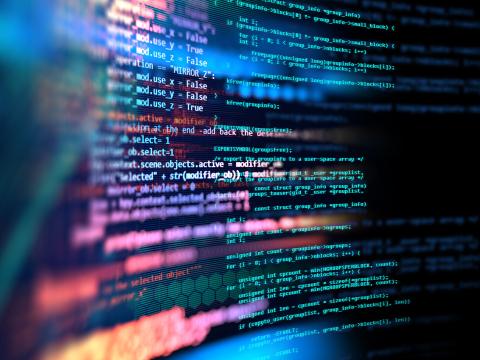U.S. Cyber Command Leans on the Artificial Intelligence Security Center
The U.S. Cyber Command (CYBERCOM) is relying upon the National Security Agency’s Artificial Intelligence (AI) Security Center on several fronts, the command and agency’s leader reported.
Given the enormity of adversarial threats on the digital battlefield, CYBERCOM’s use of AI to help protect the cyber domain is essential, stated Gen. Timothy Haugh, USAF, commander, CYBERCOM, and director of the National Security Agency (NSA) and the Central Security Service, at AFCEA International's TechNet Cyber conference. The organizations must also help ensure that AI-related capabilities are cyber secure.
“At Cyber Command and NSA, we have two lenses when we talk AI: cybersecurity for AI and AI for cybersecurity,” Gen. Haugh stated. “We must learn how to protect our nation's competitive advantage in AI from foreign cyber attacks, and quickly operationalize the means to do so, while also exploring how we can leverage AI to enhance the full spectrum of our cybersecurity capabilities.”
The AI Security Center is at the center of that functionality, the commander emphasized. The NSA created the center in 2023 to protect against threats to AI solutions implemented in U.S. national security systems and in the defense industrial base. The center also specializes in addressing threats from adversarial employed-AI. “The AI Security Center will detect and counter threats, drive and deepen partnerships, and develop, evaluate and promote best practices,” Gen. Haugh shared.
CYBERCOM also has its own AI Task Force designed to move the command from just “participating in opportunistic AI applications to systemic adoption.” The command and the task force are “closely” partnering with all of the service cyber components to deliver AI capabilities needed for the broader cyber mission and daily cyber warfare operations.
“We are taking steps to integrate our AI Task Force even more closely with operations,” Gen. Haugh noted. “Second, we are posturing U.S. Cyber Command to enable AI adoption at scale by addressing many of the nonmaterial issues like policy and standards that will be required to allow responsible, ethical, assured and secure application of AI. And finally, our no-fail mission means that we are laser focused to counter AI threats and exploiting emerging opportunities.”
Moreover, CYBERCOM’s recent designation as a federal laboratory will further enhance the capacity to drive innovation, collaborate with academia and industry, and contribute to the advancement of AI-related cyber technologies, the general said.
“With the federal laboratory designation comes our authorization for technology transfer,” the commander stressed. “This facilitates the exchanges and enhances our public-private convergence in ways that will include the defense industrial base.”
In addition, Gen. Haugh encouraged the military and defense industrial base to support the quick and effective development of technologies, including AI technologies. “With emerging technology, speed and agility are key not only in operations, but in capability development and acquisition,” he emphasized. “We must challenge legacy approaches and move toward rapid innovation to prevail. We cannot succeed when our existing processes move slower than the rate of innovation and change.”
TechNet Cyber is an annual event held in Baltimore, Maryland, organized by AFCEA International. SIGNAL Media is the official media of AFCEA.





Comments